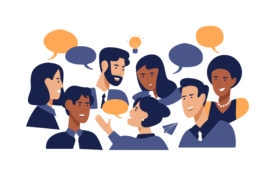-
Your Native Tongue Holds a Special Place in Your Brain, Even if You Speak 10 Languages
Most people will learn one or two languages in their lives. But Vaughn Smith, a 47-year-old carpet cleaner from Washington, D.C., speaks 24. Smith is a hyperpolyglot—a rare individual who speaks more than 10 languages. In Visit Page
-
How Brains Seamlessly Switch between Languages
Billions of people worldwide speak two or more languages. (Though the estimates vary, many sources assert that more than half of the planet is bilingual or multilingual.) One of the most common experiences for these individuals is a Visit Page
-
A Real Talking Point: Bilingual Children Are Not Smarter Than Others
Remember how we all thought bilingual kids were smarter because they knew two languages? It turns out that’s not true, say researchers at Western University. J. Bruce Morton and Cassandra Lowe, who work at the Visit Page
-
UCLA Study: Babies in Bilingual Households Respond Better to ‘Baby Talk’
Babies will pay more attention to baby talk than regular speech, regardless of which languages they’re used to hearing, according to a study released today by UCLA’s Language Acquisition Lab and 16 other labs around Visit Page
-
The Secret to Learning Any New Language May Be Your Motivation
If you want to effortlessly become an expert in a new language, you’re probably too late. That’s an opportunity largely reserved for children. And yet, adults regularly set out to study a second (or third Visit Page
-

Why Are There Differing Preferences for Suffixes and Prefixes Across Languages?
Interview with Alexander Martin about the preference of prefixes over suffixes in WEIRD languages. Visit Page

